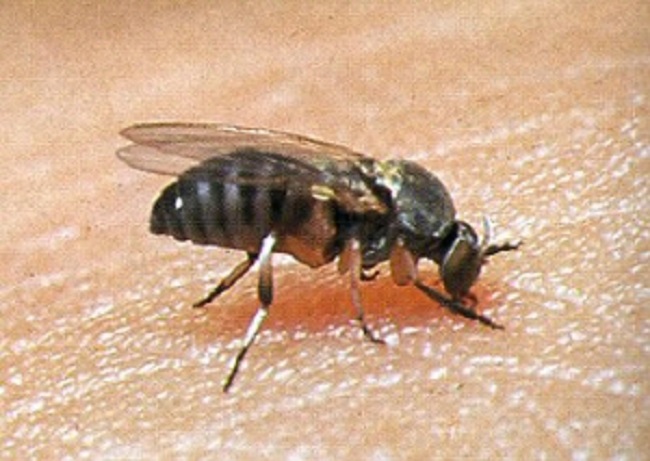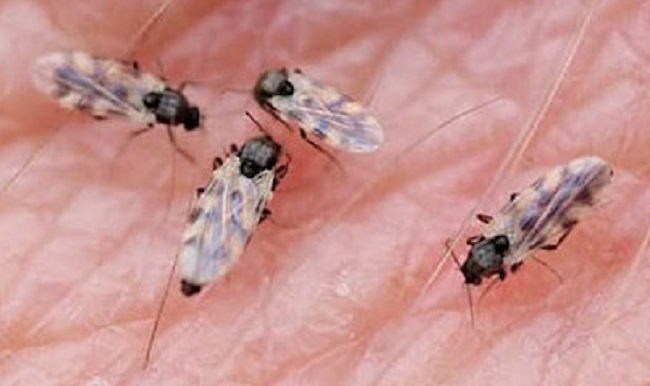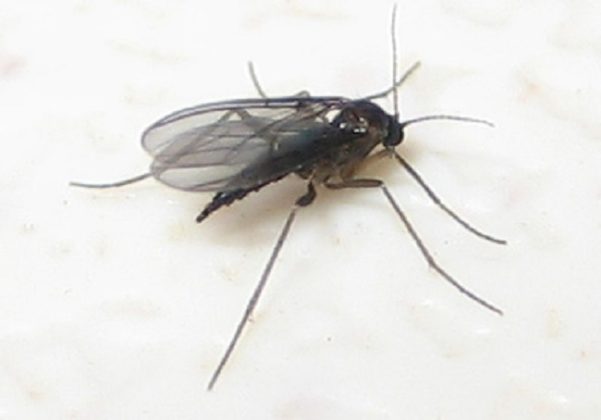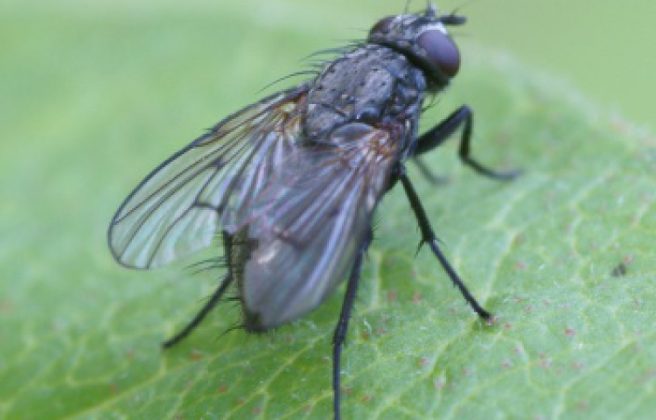Little flying black bugs bugging you this time of year? You’re not alone.[wpedon id=”82220″ align=”center”]
“What are these little flies that are making things uncomfortable just before a great weekend?” asked a reader of ThePerryNews.com. “How long will they stick around? I have never seen this variety before but very annoying.”
Facebook discussion was even more pointed.
“Okay. Next rant, When is F@&$;”N GNAT season over!” said one vexed person.
“Gnat soon enough,” a punster replied.
“Yep, it sounded like it was raining on my way to work this morning,” another person observed. “It wasn’t. It was the sound of gnats hitting my windshield!”
ThePerryNews.com knows when to seek the expert advice of academic scientists. If the question were one of human-caused climate change, we would ignore the scientists and take our truth from experts such as fossil-fuel titans Charles and David Koch, EPA Director Scott Pruitt and U.S. Sen. James Inhofe.
When it comes to flying pests, however, then we trust to science. Dr. Laura Iles, director of the Plant and Insect Diagnostic Clinic at Iowa State University Extension and Outreach, told it all to ThePerryNews.com Wednesday afternoon.
“These are probably black flies,” Iles said. “I can’t explain why they’re so bad. With insects, progosticating is an inexact science. It’s like trying to tell the weather. We can say that conditions must have been good this year for black flies.”
But how long must we bear these fardels, grunting and sweating and having our evening calm disquieted by these little flying biters?
“The good news is just a few weeks,” Iles said. “The bad news is just a few weeks.”
She said Iowa has its midges, which live a brief 48 hours and form huge clouds around water bodies, and we have our fungus gnats and our dusk-loving mosquitoes, “but it’s the black flies that really come out in daylight hours and on beautiful days like this when there’s not much wind, and I think that’s what people are noticing for the most part. I’ve noticed more of them this year.”
Iles said black fly larvae develop in water, and the adult stage of most species of black fly have one generation per year.
“Adult females feed on blood for two to three weeks,” she said. “Some species tend to bite more than other species, and some just seem to like to fly into our ears and drive us crazy. I’ve been getting a lot of calls about them, so it’s definitely been a good year for them across Iowa.”
Coping with the bugs is more a matter of libertarian individualism than an excuse for the nanny state of local government to step in and provide for our comfort.
“These aren’t like mosquitoes,” Iles said, “where municipalities can undertake fogging programs and reduce the numbers. For these, they’re active and flying during the day, and that’s not a time when we want to be fogging out in the communities.”
She said products that repel mosquitoes “just do not work as well for black flies. That’s pretty typical. They tend to like darker-colored clothing. This is one where a lot of people will try different things, so I would say if you try one product and it’s not working for you, try another product. Everybody’s body chemistry is a bit different.”
The black flies do not pose a public health risk, Iles said. They merely disturb our comfort.
“There’s no disease associated with them,” she said, “but some people have a really strong allergic reaction to the bites. That’s the bigger problem. It’s not like wasps, but some people will get really swelled up and have quite a bit of itching. If that’s the case and you’re having a really more than normal reaction, it’s probably good to talk to a dermatologist and see if there’s something they can do to help reduce the itching.”
We blessed humans have options. If we’re taking our cocktails in the blue, red and gray on the veranda, for instance, and the pests come to vex us, we can withdraw into the air-conditioned comfort of our rooms. Non-human livestock isn’t so lucky.
“It’s the annoyance to animals that’s the problem,” Iles said. “It’s similar to humans except for the animals cannot get away from them. Especially with horses and animals that are outside and the animal, you can tell, is being caused a great deal of annoyance, you definitely want to speak with your veterinarian because there’s definitely products you can use to treat the animals.”
Soon the black flies will lay their eggs and die away with the spring. The mosquitoes not so much. That is why the city of Perry, beginning Thursday, May 24, will start spraying for mosquitoes every Thursday evening, weather permitting.
If it should rain of a Thursday evening, the city crews will spray on Friday or Saturday evening.
Residents of Perry can help control the mosquito population by taking a few simple measures. Since rainy weather leaves pools of standing water, the prime breeding habitat for mosquitoes, residents should check their yards and drain any standing water in planters, buckets, water barrels, stopped-up gutters, tires and similar catch basins.
During periods of wet weather, residents should check for standing water at least once a week. Mosquitoes lay eggs in standing water, but it takes seven to 10 days for the eggs to hatch. As long as water doesn’t stand for that long, the unborn mosquitoes can be destroyed and the population somewhat controlled.
Some spots cannot be drained. If you know of an area where water consistently collects and does not drain, call the Perry Street Department at 515-465-2675. City crews can treat the standing water with a chemical that will prevent the mosquito larvae from maturing.
There is no way to eliminate mosquitoes entirely. Health experts recommend wearing repellent, particularly in the early morning and in the cool of the evening, when mosquitoes are most active.
For more information, call the Perry City Hall at 515-465-2481. For questions about black flies, call the ISU Extension Plant and Insect Diagnostic Clinic at 515-294-3494.




















